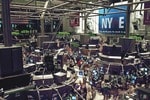
Is Celestica The Best AI Stock to Buy Now?
Technology and hardware business Celestica (NYSE:CLS) has seen massive upward…


Technology and hardware business Celestica (NYSE:CLS) has seen massive upward…

Since January 28th, software stocks in the United States have…

Over the last five days, shares of Instagram and Facebook…
Market Cap: $4.4T
P/E Ratio: 37x
Market Cap: $3.9T
P/E Ratio: 35x
Market Cap: $3.7T
P/E Ratio: 28x
Direxion Daily MSCI South Korea Bull 3X Shares [KORU] is down 31.47% over the past day.
Harrow, Inc. [HROW] is down 27.92% over the past day.
MicroSectors Gold Miners -3X Inverse Leveraged ETN [GDXD] is up 26.18% over the past day.